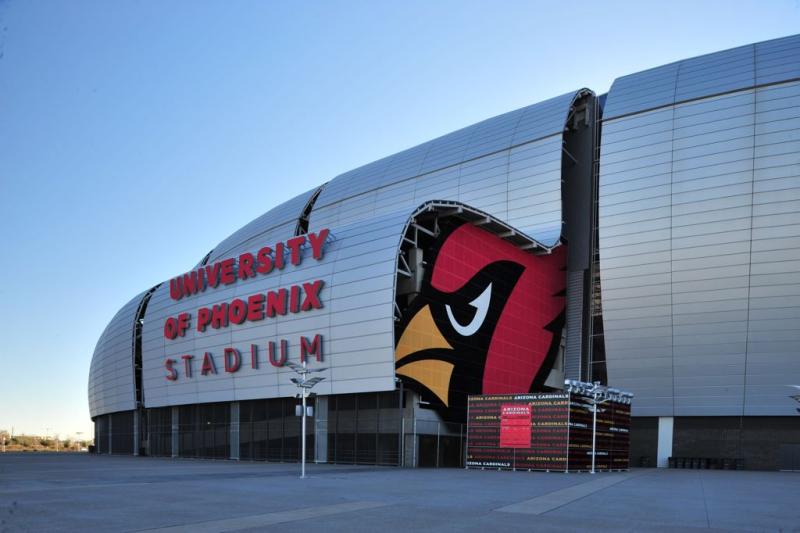
Last Wednesday, Judge Christopher Whitten of Maricopa County Superior Court found Arizona’s car rental tax unconstitutional. This 3.25 percent car rental tax was key to funding the Valley sports stadiums, along with a one percent hotel-bed tax through the Arizona Sports and Tourism Authority. Both taxes went towards funding debt payments on the University of Phoenix Stadium, tourism promotion, and Cactus League stadiums. As a result of the court decision, Arizona government and taxpayers must refund $160 million combined to the various companies in the lawsuit.
Voters approved the rental car and hotel taxes in 2000. Targeted taxes like these are an often-used tactic for targeting out-of-state residents for projects like sports stadiums. Luckily, Arizona state law prohibits the use of tax revenue collected on cars to be spent on anything non-highway related. That includes stadiums.
David Goodfriend, chairman of the Sports Fans Coalition, weighed in on the use of taxpayer funds being directed towards sports enterprises “I have never seen a profitable multi-billion-dollar business at the trough — the public trough — the way we’ve seen sports leagues and team owners shamelessly take taxpayer money and not give anything back in return,” Goodfriend said. “They say to us essentially, ‘You should just be grateful that we are here.’”
The General Counsel for the authority, Sarah Strunk, said that there will likely be an appeal once the final rulings are made. This begs the question: What constitutional grounds could this rental car tax stand on? An attorney for the department of revenue could not be reached by the Arizona Republic.
While decisions on whether the already collected tax revenue is to be returned have not been made the taxes will continue to be collected. Strunk added, “This is business as usual.”
The Taxpayer Protection Alliance recently released a report detailing the massive amounts of public spending on football stadiums around the United States. In regards to Arizona they note that, “Despite hosting two Super Bowls and many other major events, the [University of Phoenix Stadium] has failed to generate the anticipated economic benefit.”
They report that the median household income in Maricopa County, where the stadium is, has fallen almost 10 percent since the opening of the stadium, and the poverty rate has increased significantly. TPA’s figures say that the stadium has cost $308 million to taxpayers.
The Maricopa County Court ruling suggests that a majority of the funds used to pay for the sports stadium over the past 15 years were done so unconstitutionally. So what’s next? Time will only tell but in the meantime, rental car consumers and tourists alike will continue to foot the bill.

